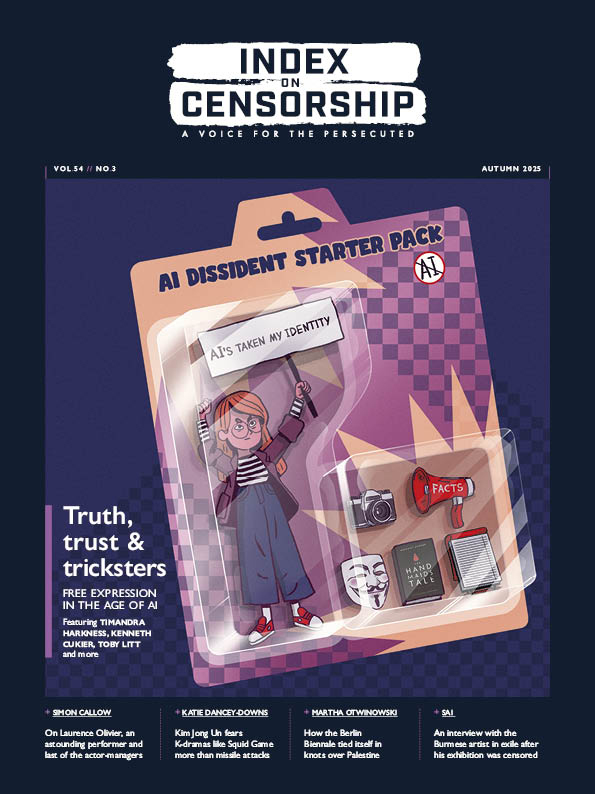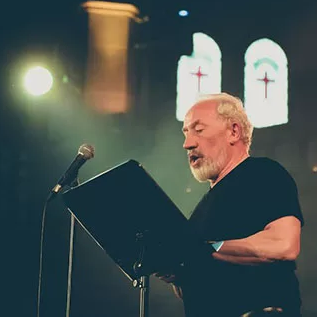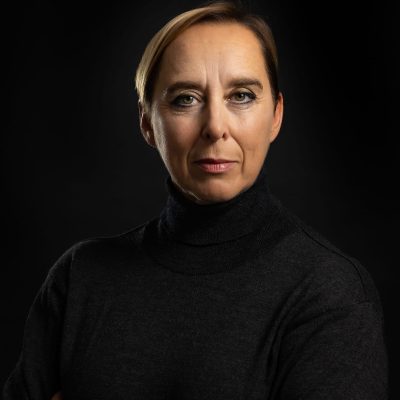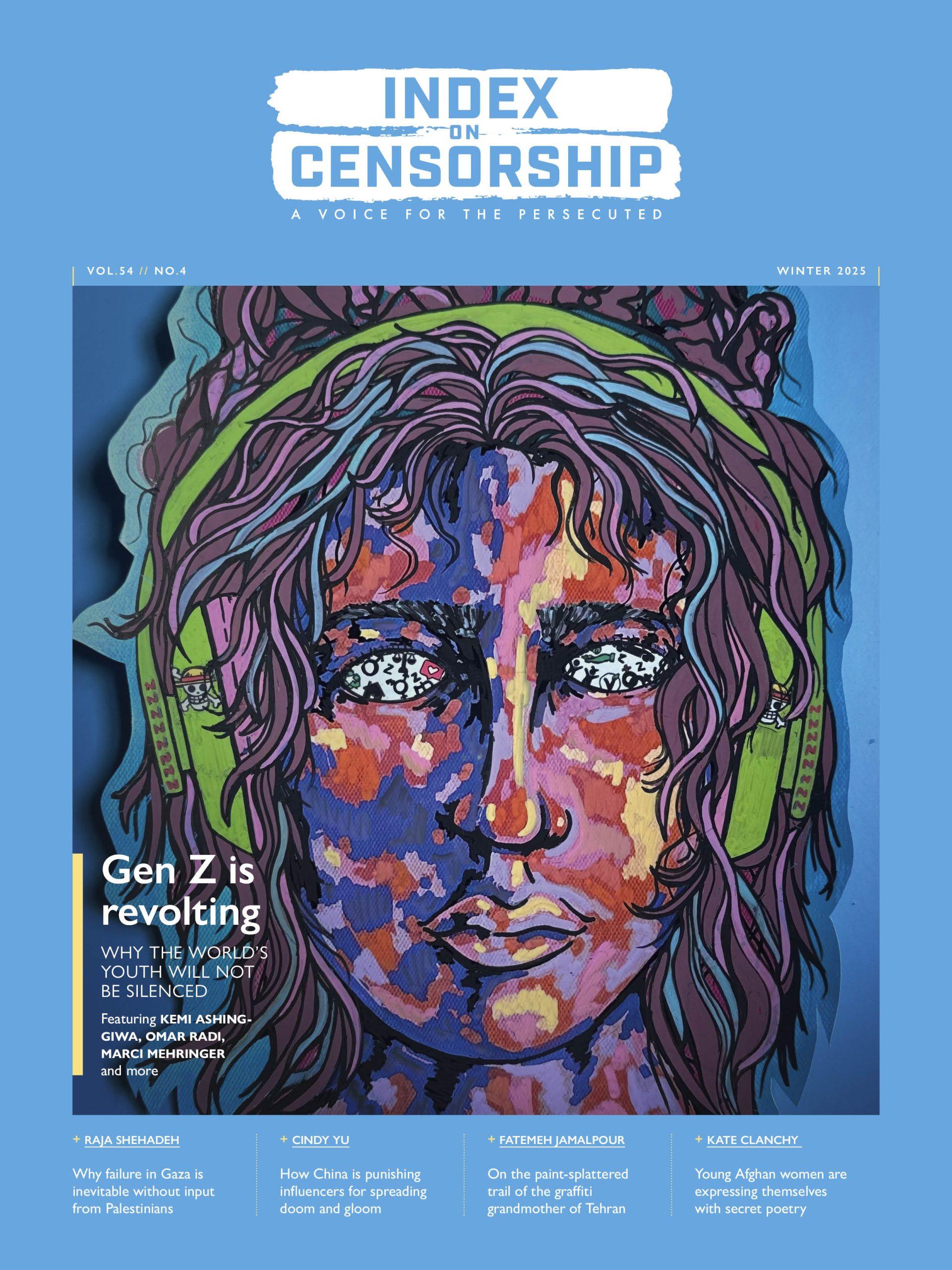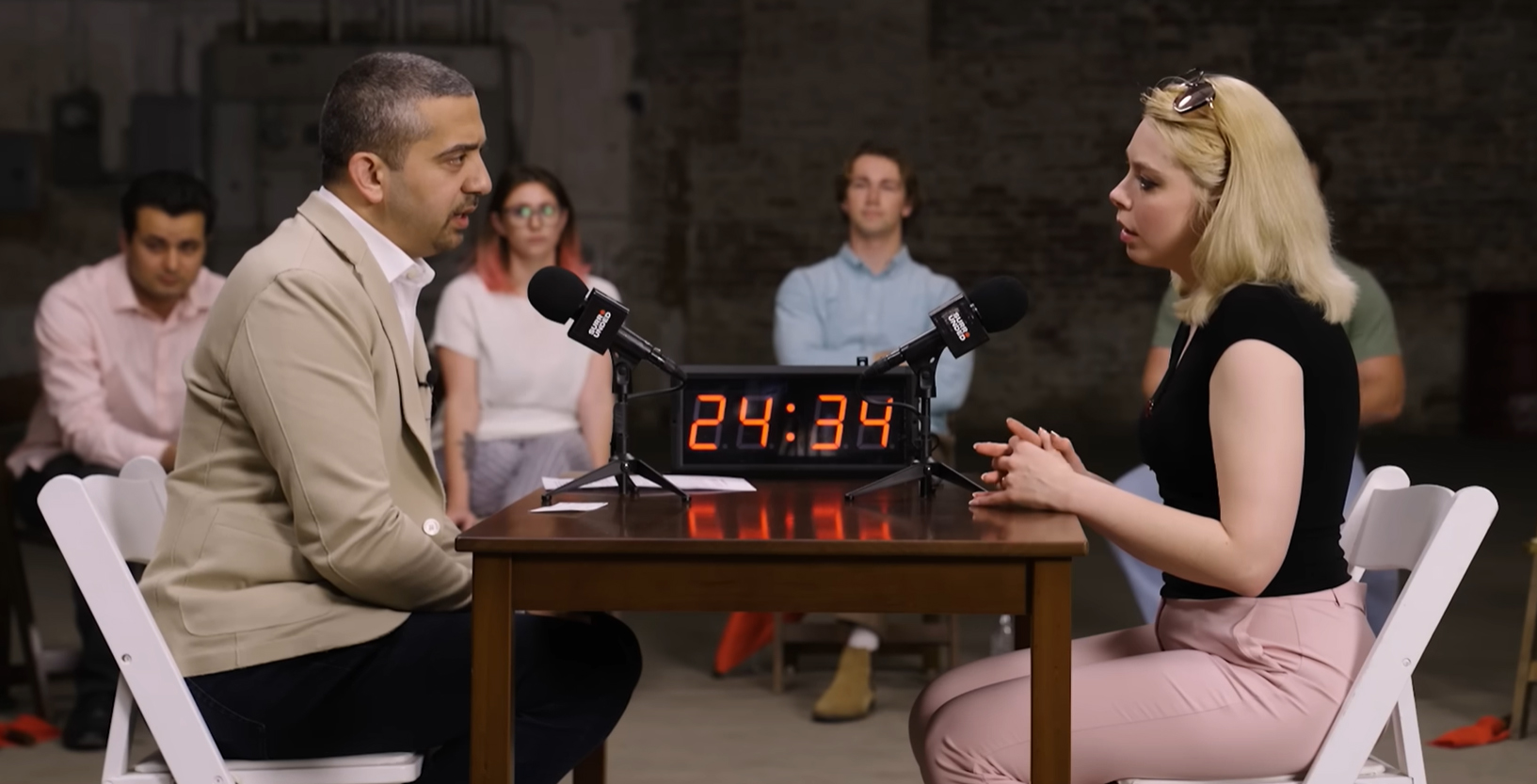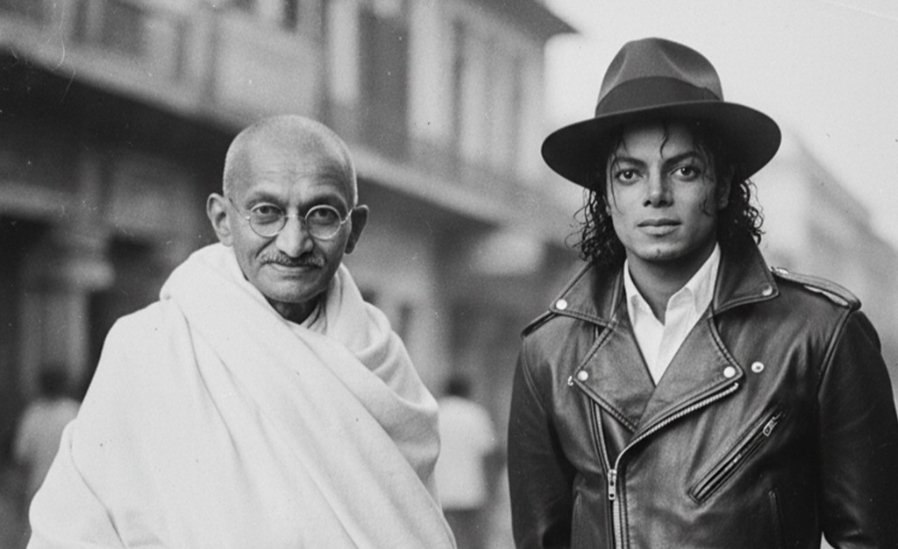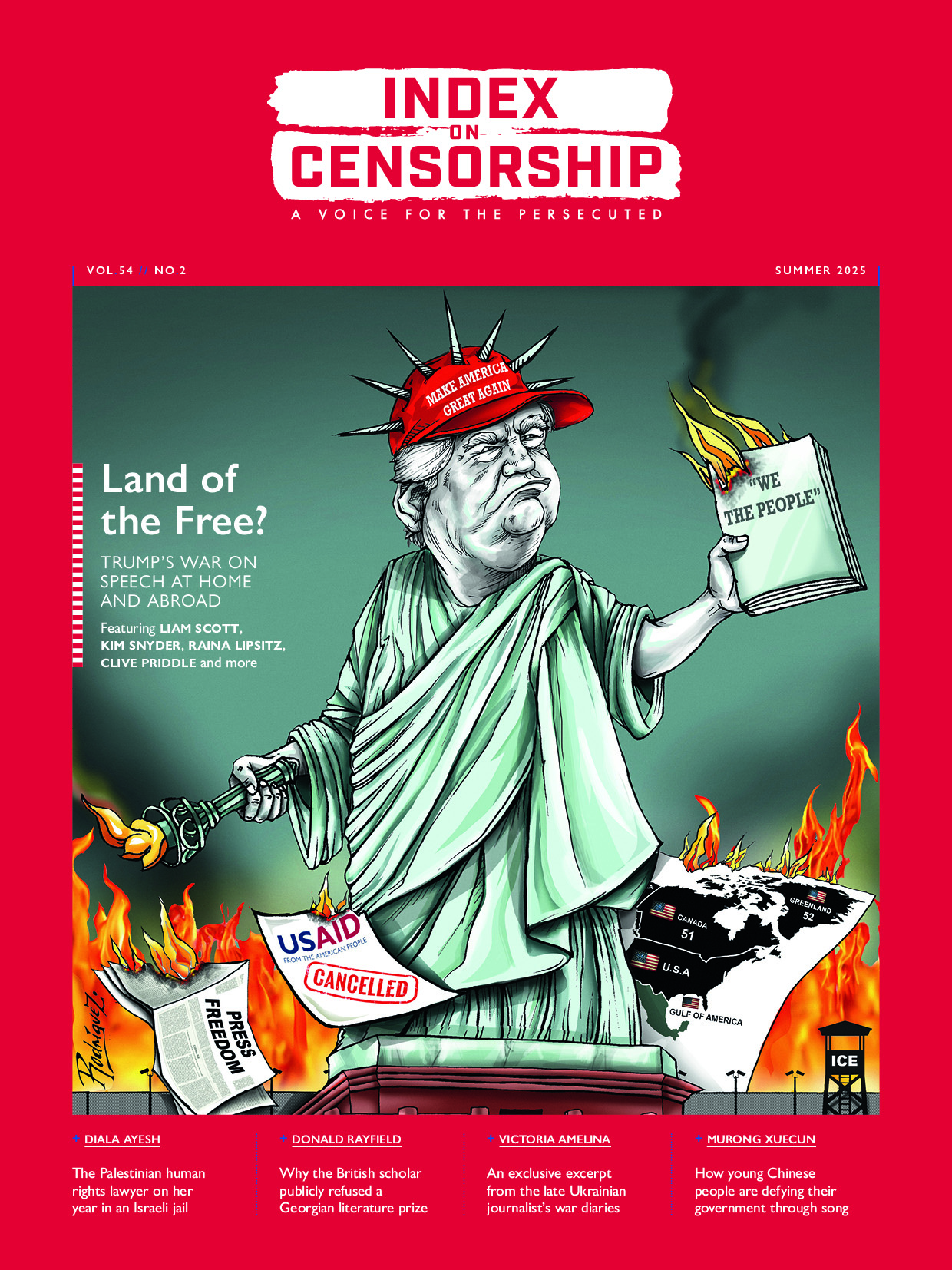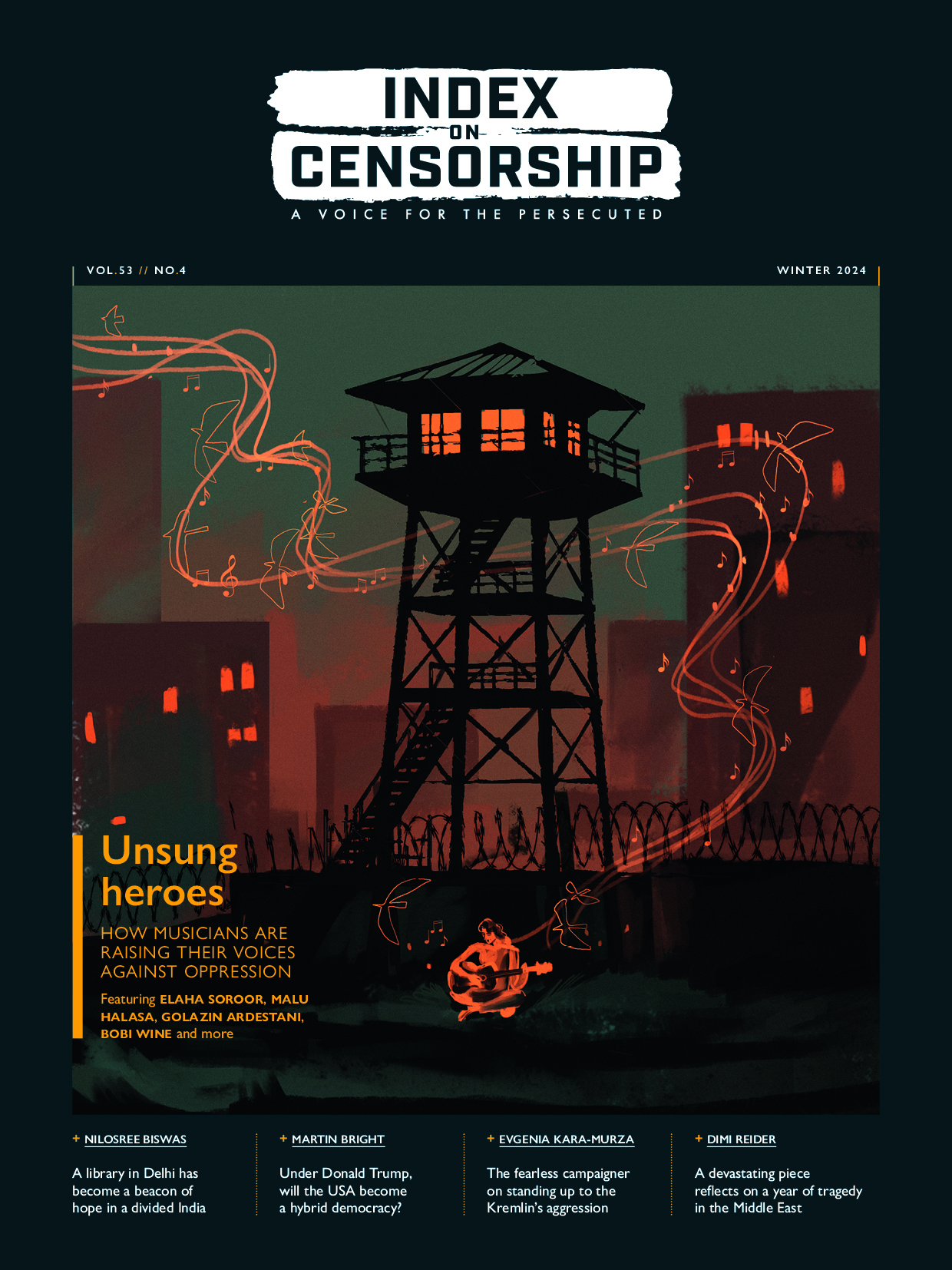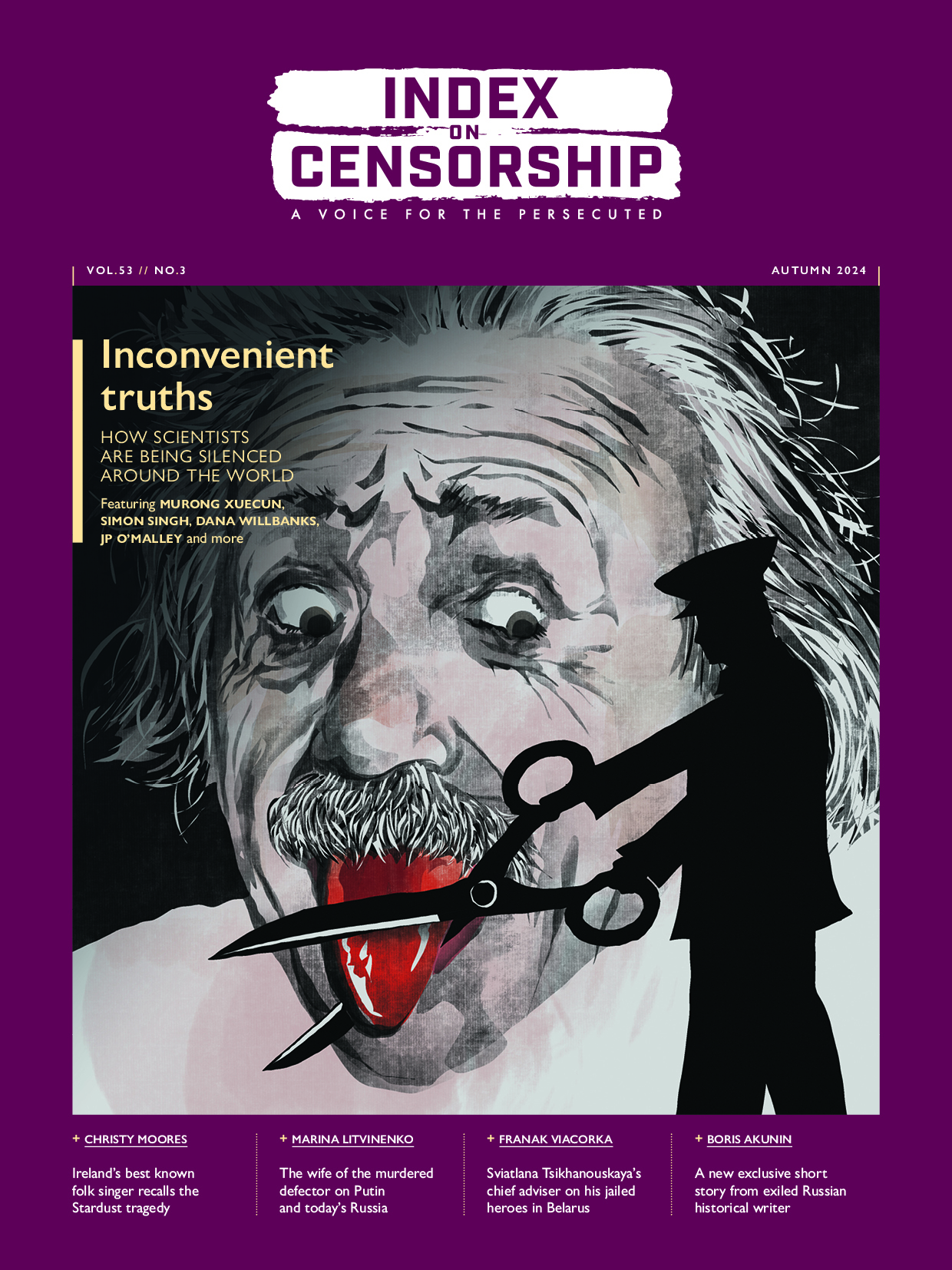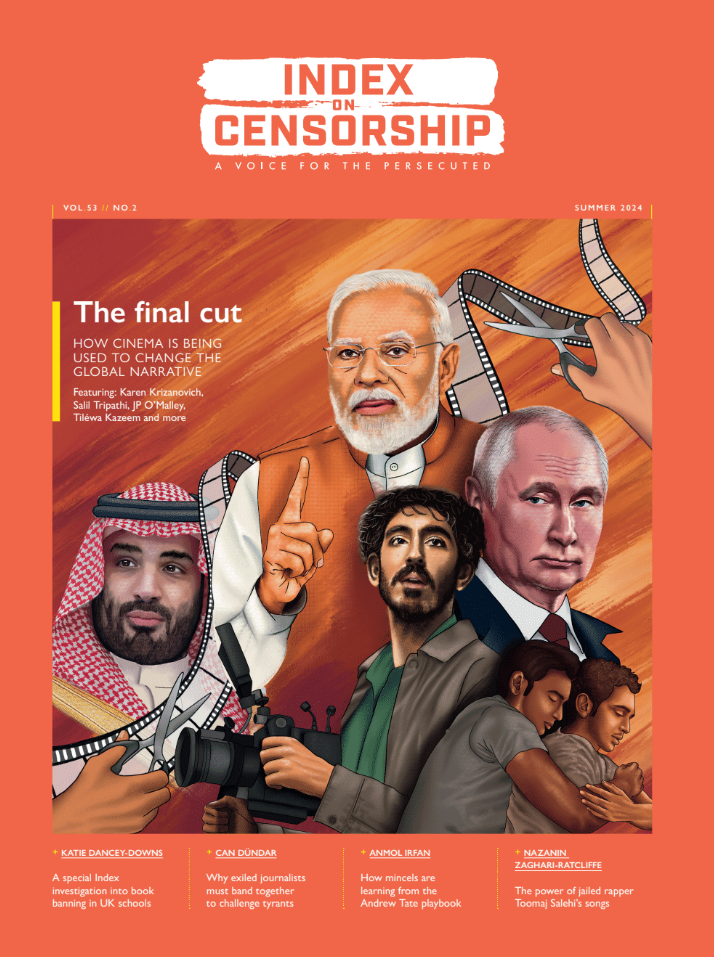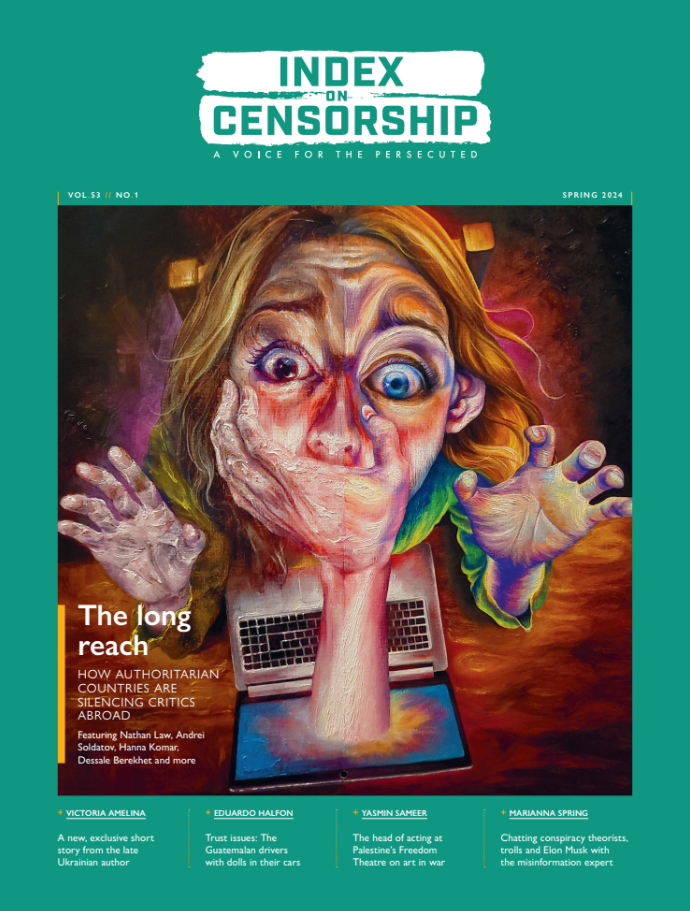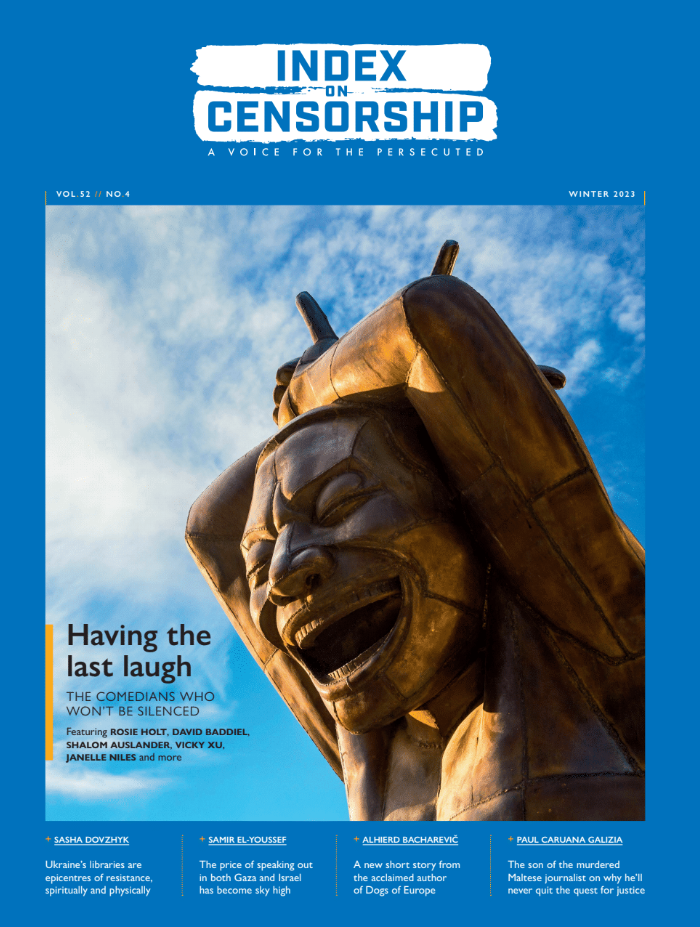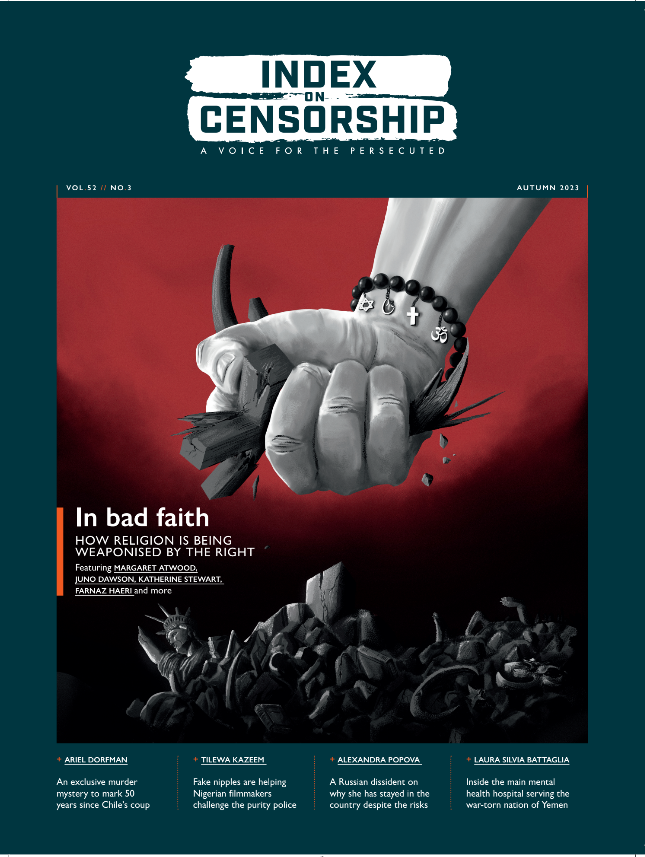It is difficult to spend a day without using artificial intelligence. Whether we look up a fact on Google or use our car’s navigation system, AI is helping to guide us. AI is not human, but is increasingly taking on human characteristics. Want to write a five-year strategy for work? AI can give you the structure. A text to the lover you’re breaking up with, ChatGPT is on hand with the perfect choice of words. Even as I compose this editor’s letter in a Word document, the sinisterly named Copilot – Microsoft’s AI assistant – is hovering in the margin with the tantalising offer that it could do a better job.
So what does it all mean for free expression? We asked a range of writers to explore themes around censorship and AI for this latest issue, and the result is fascinating. Kate Devlin delves into griefbots which are essentially deepfakes of dead people – often with all their unpleasant characteristics removed.
Innocent enough but in the wrong hands they are pernicious. A country’s political hero can be resurrected to encourage causes they would have disavowed were they alive. Ruth Green looks at whether AI has free speech.
In a recent US lawsuit, the owner of a chatbot which had been talking to a teenager, in a sexualised way, before he killed himself, argued that the bot’s communications were covered by the First Amendment. Luckily the judge threw the case out.
Meanwhile Timandra Harkness examines how AI can trawl social media to discover every word you’ve ever written.
FEATURING
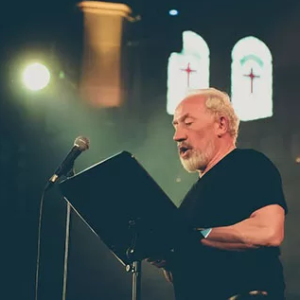
Simon Callow
Simon Callow CBE is an English actor, musician, writer, and theatre director, famous for his film roles in Four Weddings and a Funeral (1994), Shakespeare in Love (1998) and A Room with a View (1985).

Timandra Harkness
Timandra Harkness is a British writer, presenter and comedian who wrote the 2004 book Big Data: Does Size Matter?, and the recently released Technology is Not the Problem.

Toby Litt
Toby Litt is an English academic and writer. He is a Fellow of the Royal Society of Literature and editor of MIRONLINE

